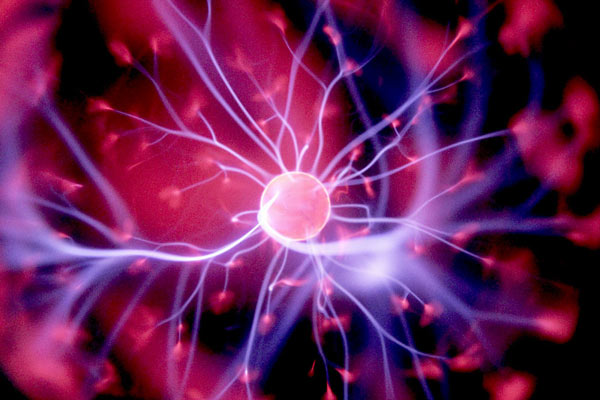Stairway Resource Center’s Transcranial Magnetic Stimulation (TMS) Program
Transcranial Magnetic Stimulation (TMS)Therapy for Addiction and Recovery
At Stairway Resource Center, you’ll find more than just traditional drug, alcohol, and mental health treatment. Our evidence-based approach to recovery combines the 12-Step model with cutting-edge therapies like transcranial magnetic stimulation (TMS) for a unique and comprehensive path to long-term sobriety.
What Is Transcranial Magnetic Stimulation (TMS)?
TMS is a non-invasive therapy that works by stimulating nerve cells in the brain using magnetic fields, usually in the prefrontal cortex, which regulates your emotions, mood, and behavior. TMS can potentially alter the way your brain functions, helping you break the cycle of substance abuse, depression, anxiety, and other debilitating conditions.
How TMS Works as a Non-Invasive Treatment
TMS is a drug-free, non-invasive treatment where electromagnetic coils are placed on a patient’s scalp. These coils then deliver pulses that act as a stimulant for nerve cells, which can help alleviate feelings of depression and anxiety, as well as alleviate cravings and boost your mood.
The Science Behind TMS Therapy for Addiction Recovery
TMS therapy works through rapidly changing magnetic pulses that adjust the way neurons respond. The neurons’ cell membranes become less polarized, which then triggers them to activate an electrical signal. These signals modulate brain activity and can be a powerful tool in overcoming complex issues like depression, anxiety, and addiction, which can all change the way our brains normally function.
Why TMS Is a Breakthrough in Mental Health and Addiction Care

Research shows that relapse rates hover around 65% for alcohol addiction and even higher for opioid use disorders. This is why you’ll find unique and innovative therapies like TMS at Stairway Resource Center. Here, we specialize in offering cutting-edge solutions for patients who haven’t found success in other treatments. TMS therapy can actually get to the root of addiction in your brain, helping you stabilize your mood, reduce cravings, and get back to a healthy brain function.
The Benefits of TMS Therapy for Addiction
Even though it was initially conceived as a therapy for depression, TMS also has a wide range of benefits for addiction. Since addiction can change the way our brain normally functions, from disrupting our mood to becoming hardwired to seek out substances, TMS can be used to bring your brain back to a normal and healthy function.
Reducing Cravings, Stabilizing Mood, and Supporting Long-Term Sobriety
TMS can target areas of the brain that are responsible for addictive behaviors, changing the way you respond to triggers, cravings, and more. In fact, research has shown significant reductions in drug cravings when an individual undergoes TMS therapy. It can also stabilize your mood, allowing you to feel more confident, focused, and empowered. Positive emotions like these are huge foundational pillars that are wildly important in supporting long-term sobriety.
Treating Co-Occurring Disorders With TMS Therapy
Even though nearly half of all people who struggle with substance use disorder will also experience one or more co-occurring disorders, like depression or anxiety, in their lifetime, many traditional drug treatments do not always take these co-occurring disorders into account. TMS, however, can be used for a wide range of mental health conditions as well as addiction.
A Drug-Free, Evidence-Based Solution to Support Recovery

When traditional drug treatments like medication and psychiatry do not work, it can cause relapse or make you feel like you have failed. Here at Stairway Resource Center, we believe that every patient deserves a wide range of treatment options, like TMS, to find what works best for their unique journey. TMS provides you with a drug-free, evidence-based solution you can’t find everywhere else.
Why Choose TMS Therapy at Stairway Recovery?
Here at Stairway Recovery Center, we offer in-house TMS therapy combined with a full range of clinical and holistic therapies, plus a 12-Step focused philosophy to deliver unparalleled support.
Expert Care in a Compassionate Setting
At Stairway Resource Center, our expert clinicians are here to deliver world-class care in a compassionate setting with a program that includes people from all walks of life. Here, you will feel seen, heard, and understood in a supportive and non-judgmental environment, improving your chances of finding recovery success.
Customized Treatment Plans Tailored to Your Needs
No two recovery journeys are the same, and at Stairway Resource Center, you’ll be sure to have a customized treatment plan tailored to your unique needs. We offer a wide range of clinical therapies as well as holistic modalities to give you a variety of options to explore, including some of the most innovative therapies available.
State-of-the-Art Facilities in Woodland Hills, California
Stairway Resource Center’s state-of-the-art facilities in Woodland Hills, California, provide a home away from home where you’ll find the support you need to stay focused on your recovery. Unlike most programs, we offer TMS in-house, as well as other advanced treatment modalities like eye movement desensitization and reprocessing (EMDR) and brainspotting. These advanced therapies are highly effective for those who have tried traditional therapies without success.
Who Can Benefit From TMS Therapy?
TMS therapy has a wide range of benefits for individuals struggling with addiction, depression, anxiety, and a variety of other mental health conditions.
TMS therapy may be right for…
Individuals Struggling With Addiction and Mental Health Challenges
Originally used for depression, TMS is now a cutting-edge therapy that can help those struggling with substance use disorder and other mental health issues as well. This therapy aims to stimulate brain receptors that have lost normal functioning due to chronic conditions and habitual substance abuse, making it a powerful tool for overcoming your struggles in the long term.
Patients With a History of Relapse or Treatment Resistance
At Stairway Resource Center, we’re proud to offer innovative therapies that can especially help those who have had a previous history of relapse. TMS bridges the gap created by traditional treatments with a non-invasive process that targets areas of the brain known to control chronic diseases like addiction. TMS is also excellent for pregnant women, the elderly, and anyone else who may be resistant to medication-assisted treatment.
Those Seeking a Holistic and Non-Invasive Approach
TMS is a great alternative for those seeking a holistic, non-invasive approach to treatment. In fact, many people often compare the sensations experienced during a TMS session to those experienced during a magnetic resonance imaging exam (MRI). At Stairway Resource Center, TMS can be used in combination with other holistic, non-invasive therapies to give you a truly comprehensive plan for recovery.
What to Expect During TMS Therapy
If you’re new to TMS therapy, you’re probably wondering what to expect during a session. The process is fairly simple and straightforward, but it’s important to understand all the moving pieces before you begin.
Take the Next Step in Your RecoveryWith TMS at Stairway Recovery
Whether your recovery journey has just started or if you’ve been down this road before, choosing Stairway Resource Center will set you on the path to a life of happiness, empowerment, and long-term sobriety. Our 60 to 90-day outpatient program will give you the tools, structure, and support to help you stay accountable and pave the way for an enriching life free of drugs and alcohol.


Ready to experience the transformative power of TMS therapy? Give us a call to speak to our team and discover how TMS therapy can support your journey and help pave the way to long-term sobriety.
Frequently Asked Questions
How long is your program?
Do you allow pets?
What is the difference between your detox program and other rehab centers in Los Angeles?
What happens after I complete the detox program?
What are the benefits of choosing Stairway Resource Center for my detoxification in Los Angeles?
What is the client-to-staff ratio at Stairway Resource Center?
Can your program still help me if I’ve relapsed before?
Does Stairway Resource Center offer treatment for co-occurring disorders such as alcohol addiction and depression?
What makes Stairway Resource Center unique compared to other treatment centers in Los Angeles?
How does your program address the specific challenges of opioid addiction?
What is the role of family in the recovery process at Stairway Resource Center?
Will I feel supported after leaving the program?
How long is your program?
Do you allow pets?
FAQsAbout Transcranial Magnetic Stimulation (TMS) for Addiction Recovery
What is TMS therapy, and how does it help with addiction?
Is TMS therapy safe? What are the side effects?
Transcranial magnetic stimulation (TMS) therapy is a non-invasive treatment that can help you heal from substance abuse and mental health disorders. To learn more about our programs and how TMS can help you, call Stairway Resource Center at
